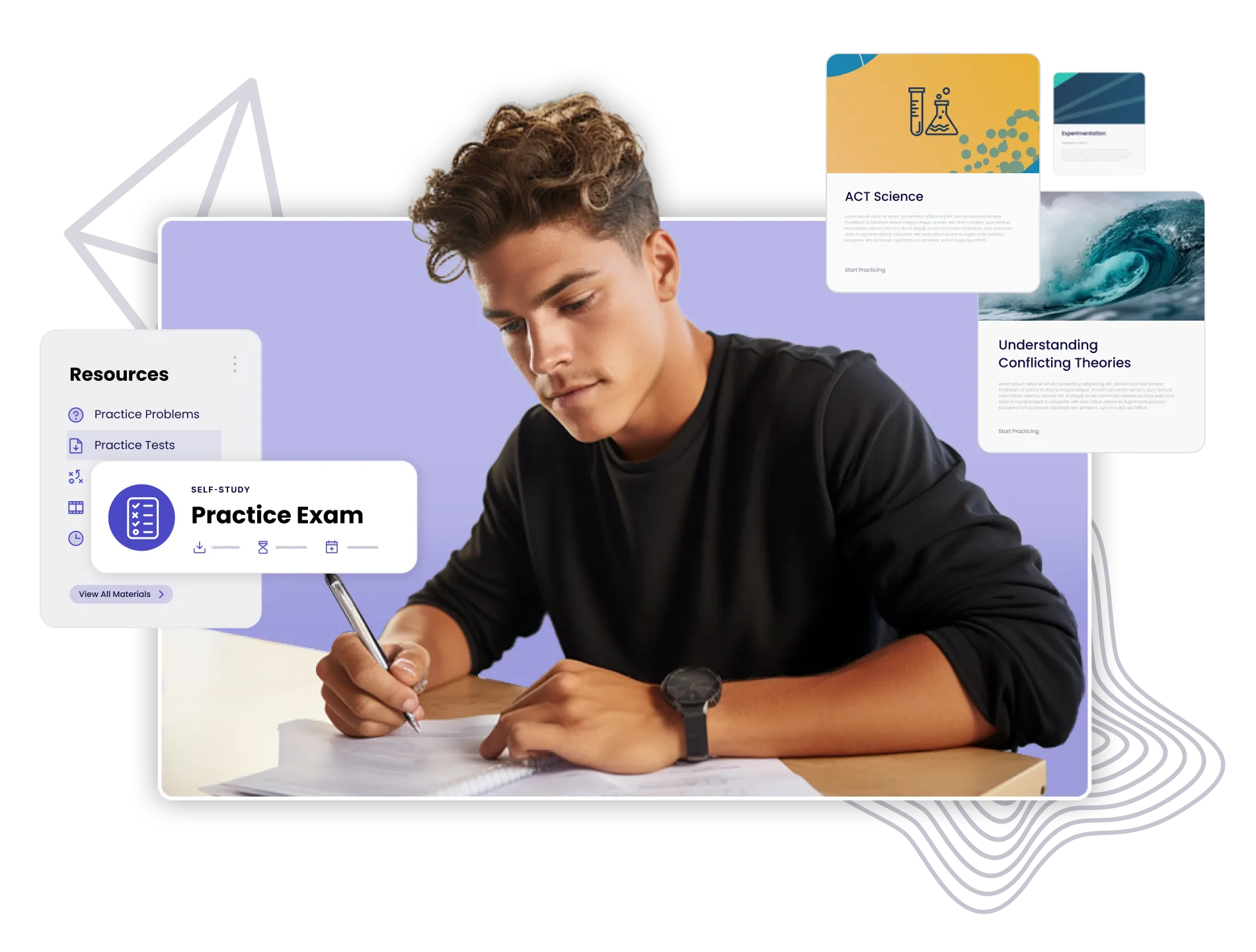How To Think About Standardized Tests

SAT. ACT. AP. If you’re a high school student with college aspirations, there’s a good chance you’re thinking about “all the above” when it comes to these standardized tests–plus IB, PSAT, and others. Regardless of which tests are on your agenda, some overall strategies will help you choose the right tests to take, select the right “test-optional” option for you, balance your calendar to make time to perform your best, and employ effective study and test-taking strategies to maximize your score across the board.
1. Test Optional? Give Yourself The Option
Test-optional sounds like a great proposition for students: it’s up to you! But soon almost every student realizes that test-optional just presents one more high-stakes, multiple-choice test: should you take the test or not, and should you report your scores or not?
The answer to the first question should be straightforward: take the test. All the data from the test-optional era shows that students with high scores get admitted at significantly higher rates than students with no scores, so you should at least give yourself a chance at being in the “high score” group.
From there, look at the score ranges at your target schools. If you believe you can get a score within or above that range, you should go for it even if that means retaking the test to get there. Again, all other things being equal, a high score is going to look better than no score. Only if you’ve looked at your performance and don’t see a path to a competitive score should you take the option to not report a score.
2. Leave Yourself Retake Room
Do you get nervous on high-stakes tests? The best cure for test anxiety is the realization that you simply cannot fail–and that’s absolutely true if you leave yourself plenty of time to retake the test. Even an abominable score on the March SAT or April ACT cannot possibly hurt you, because in each case you have several opportunities to take the test again: a springtime standardized test is at worst an expensive (but authentic) practice test, and at best a chance to post a massive score.
There are also competitive implications. Lots of schools will allow you to “superscore” your SAT or ACT, meaning you can combine your highest section scores into a fantastic composite score. But remember: if they let you do it, they also let every other applicant do it, too, so you’ll want to make sure you have multiple opportunities to improve.
So take tests early: fall of your 11th grade year isn’t too early even if you know you’ll be more prepared in the spring. Getting the experience of a test is incredibly helpful, and performing at your peak with plenty of retake opportunities gives you the confidence to maximize your score.
3. Give Advanced Placement Advanced Preparation
Unlike the SAT and ACT, AP exams don’t give you a retake option: you’ve got one shot in May to give yourself college credit and a nice bullet point on your application, but you have to capitalize. The good news? You’ve already been studying for this test all year! The bad news? A lot of what’s on the test is material you haven’t seen in months, and the whole year gets measured by a handful of standardized test question formats. Plus May gets busy quickly between nicer weather, prom and graduation events, the approach of final exams and project due dates, and your other activities.
So make sure to plan for several weeks of AP-specific study, which should include 1) content review to get the entire year’s knowledge top of mind and 2) specific preparation for the types of questions asked on your AP exam. Teachers will tell you that cramming is never a good idea, but it’s especially true for a test that covers 8 months of material in a few hours and that has a specific flavor of question types that you can prepare for with time.
4. Recognize That Tests Are Their Own Genre
A common lament among conscientious high school students is that they do so well in school and feel that it doesn’t translate to success on standardized tests. And that’s not because people are “bad test takers” but instead because tests are their own types of activities that use many of the same skills as the classroom but are just different enough that you need to practice for them specifically. It’s like going from soccer to indoor soccer or hardcourt tennis to clay, where you have the skills you need to succeed, but the bounces and angles are just different enough that it can feel totally different until you’re used to it.
So while flashcards and skill reviews are important, make sure to practice doing the question types themselves and analyzing where you found them challenging or made mistakes. Often it’s not that you didn’t know the information, but that you didn’t quite grasp the wording or found an answer choice that was so tempting you lost track of something important.
Test prep can be instrumental, too. Multiple choice questions give you multiple paths to correct answers–answer choices can let you work backward or rely on process-of-elimination, for example–but wrong answers can often be tempting for repeatable reasons. Learning how to take the test can be every bit as beneficial as mastering the full range of content.
5. Level Up Your Confidence
Another reason it’s easy to feel like “not a good test taker” is that standardized tests just feel harder than many tests you take in school. And there’s a good reason for that: they are. Not only do standardized tests cover more topics and take more time than a typical high school test, but keep in mind their purpose: their goals are to differentiate between all the college-bound students in the country (SAT, ACT) or determine which high school students’ performance is already college level (AP, IB). High school tests tend to assess what you just learned at the level it was taught to you: a well-prepared student who paid attention in class and did the work should generally feel pretty comfortable. These standardized tests are designed in large part to assess or predict how prepared you are for the next level. They’re supposed to be challenging for you!
So if you’re used to feeling confident on your assignments and tests in school, don’t be surprised if you feel more uneasy with the pace or difficulty of a standardized test. It’s supposed to feel that way, and the scoring scale will adapt to that. A 30 out of 36 on the ACT is a really impressive score while an 83% (the same fraction as 30/36) on a high school test just isn’t. Remember as you approach these tests that they’re designed to assess you at the next level and since you know you’re ready for that level, you can be confident with the new challenge.

